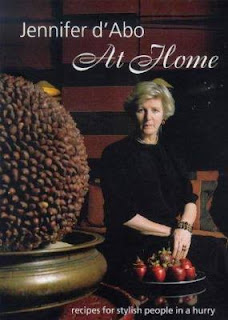Top Review of my Performance by The Ramsay Centre
Sydney, 24 June 2024: Poetry influenced by both the East and West, visually inspired by art, nature and an abundance of colour, delving deep into the intricacies of relationships and human emotions, and intermittently communicated via song; it was a treat for the senses at our recent Ramsay Writers event at the State Library of NSW, as poets Suzanne Edgar and Bhupen Thakker delighted the audience with performances of their poetry.
The Ramsay Writers Series is a Centre initiative designed to showcase Australian writers. At each event, noteworthy writers read from their own work, as well as offer perspectives on influential past works. For the second year in a row the series is focussed on Australian poets.
Outgoing CEO Professor Simon Haines hosted the evening, also attended by our regular guest poet Luke Whitington, renowned and aspiring writers, Humanities academics, Ramsay Scholars and poetry lovers.
Suzanne Edgar is a poet and fiction writer from Canberra via Adelaide. She devised and taught Adult Education and Women in Literature courses at the Australian National University and is a past editor of the Australian Dictionary of Biography. Suzanne has had two collections of short stories published, Canberra Tales (1988) and Counting Backwards (1991) and three highly acclaimed books of poetry: The Painted Lady (2006), The Love Procession (2012), and Catching the Light (2019). She is currently writing a new collection of poems.
Suzanne said she was very excited to be at the State Library, which she last visited to attend the memorial of her friend ‘the late great Les Murray’. She named Murray as a significant infuence on her work along with English novelist and poet Thomas Hardy, Judith White and the ‘incomparable’ William Shakespeare.
Suzanne also named Italian sculptor and painter Michelangelo as an inspiration, as like her he wrote poetry inspired by art; unbeknownst to many he wrote a book of sonnets. She displayed the cover of her book The Love Procession, named after an Italian painting held at the National Gallery of Australia. Suzanne also referred to actress Judi Dench while railing against modern poets dropping rhyme in poems; Dench has joyously described rhyme as ‘when two words kiss’.
Suzanne read Shakespeare’s Sonnet 130, My mistress’ eyes are nothing like the Sun and Michelangelo’s Sonnet 17, ‘The artist and his work’, which considers art’s ability to endure beyond the life of its creator. From her own work she read Sonnet for the Second Thought, The Red Chalk Drawing, Corte d’amore, Valentine, Dead Flies Have Been Trapped, Song of the Crestfallen Pigeon, Old Dubbo Gaol and Inside the Square (a poem examining the form of the sonnet itself).
‘Colour’ poet Bhupen Thakker is obsessed by the colour Light Blue. He has won multiple awards for his poetry including NSW Poetry Sprint and the Australian Multilingual Slam, as well as being Highly Commended at the CJ Dennis Awards, and a three-time State Finalist in Australian Poetry Slam. He has appeared at numerous prestigious festivals and galleries and has also featured on ABC Radio. Future works include a novel A New Gandhi, a New Monet and many others. When not writing poetry, Bhupen has a day job in international finance.
Bhupen spoke of his gratitude for his being educated in Africa, and his Eastern influences, as well as for his exposure to the Western tradition and Australia’s specific cultural influences, that have all merged in his work. To explain some of his literary influences he read For the Fallen by English poet and dramatist Laurence Binyon, a poem regularly recited at RSL Clubs across Australia. He also read the sonnet Vowels (‘Voyelles’) by French poet Arthur Rimbaud, a poem which draws upon the ‘concept of correspondences in which colour can evoke a mood or sensory experience’.
Bhupen described Rimbaud’s importance to him as a ‘colour poet; a poet of singular vision who continues to activate readers with his groundbreaking approach to language and form’. He praised his poetry for its ‘…symbolist and surrealistic elements that employ vivid imagery, jarring juxtapositons and deliberate obscurity that invites multiple interpretations.’
Bhupen then explained his own consistent use of colour, saying that during a period of being unwell he discovered the Indian system of chakras, the concept that colours live and have energy through the body. He said that colours in his poetry are not just words but emotions and feelings and he purposely uses the full spectrum of colours to ensure the reader/audience is seeing contrast and feeling the colours touch their emotions.
From his own ‘colourful’ collections of work Bhupen read the poems Mother (including a repeated quote from Shakespeare), Spacious, Noel Coward’s late male Indian partner, You become what you eat and A peaceful time. The poems traversed wide territory touching on love, humour and grief, political parody, and often including verses of song.
An audience member noted that Bhupen’s poetry recital was like witnessing a ‘small miracle…a single poem effortlessly spans East and West, Hinduism, colour theory, motherhood, the last words of young soldiers, and singing in Bhupen’s tenor voice.’
Professor Simon Haines closed the evening thanking the poets for the privilege of listening to their work, and quoting, among others, Robert Frost who said that poetry was an education in the metaphor, essential to all human thinking; and John Stuart Mill, the great 19th-century philosopher and political reformer, who found in poetry a ‘perennial source of happiness’ and a pathway to understanding the ultimate end or purpose of human life itself. Professor Haines added that putting great poetry and philosophy in front of undergraduates was the prime end or purpose of the Ramsay Centre itself.


.jpg)









Comments
Post a Comment